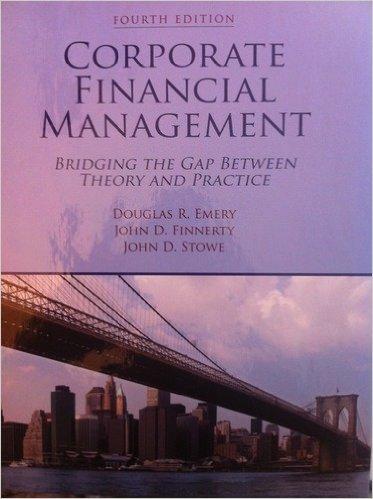Answered step by step
Verified Expert Solution
Question
1 Approved Answer
How to solve this question 3 please. Need answers with clear steps. Tq QUESTION 3 (a) Brosis Sdn Bhd, a third-party logistics firm that provides


How to solve this question 3 please. Need answers with clear steps. Tq
QUESTION 3 (a) Brosis Sdn Bhd, a third-party logistics firm that provides warehousing and other logistics services, is facing a decision regarding the amount of space to lease for the upcoming five-year period. Mr Rozi, as a manager has forecast that Brosis will need to handle a demand of 235,500 units for each of the next three years. Previously, Brosis has required 1,000 sq. ft. of warehouse for every 1,000 units of demand. For the purposes of this discussion, the only cost Brosis face is the cost for the warehouse. Brosis receives revenue of RM3.15 for each unit of demand. The five-year lease will cost RM2.30 per square foot and the spot market rate is expected to be RM2.05 per square foot per year for each of the five years. Brosis has a discount rate of 8%. Help Mr Rozi to decide whether to sign a five-year lease or obtain warehouse using space on the spot market each year. [6 marks] (b) One thousand square feet of warehouse space is required for every 1,000 units of demand, and the current demand at WHN Logistics is for 100,000 units per year. The manager decides to use a multiplicative binomial representation of uncertainty for both demand and price. From one year to the next year, demand may go up by 18.5 percent with a probability of 0.5 or go down by 18.5 percent with a probability of 0.5. The probabilities of the two outcomes are independent and unchanged from one year to the next. The general manager can sign a two-year lease at a price of RM1 per square foot per year. Warehouse space is currently available on the spot market for RM1.25 per square foot per year. From one year to the next, spot prices for warehouse space may go up by 13 percent with probability 0.5 or go down by 13 percent with probability 0.5 according to a binomial process. The probabilities of the two outcomes are independent and unchanged from one year to the next. The general manager feels that prices of warehouse space and demand for the product fluctuate independently. Each unit WHN Logistics handles results in revenue of RM1.39 and WHN Logistics is committed to handling all demand that arises. WHN Logistics uses a discount rate of k=12.5% for each of two years. Analyse the demand and price option for each of period using decision tree. [5 marks] Analyse the option of not signing a lease and obtaining all warehouse space from the spot market. [12 marks] (iii) Determine the expected NPV of non-signing the lease. [2 marks] QUESTION 3 (a) Brosis Sdn Bhd, a third-party logistics firm that provides warehousing and other logistics services, is facing a decision regarding the amount of space to lease for the upcoming five-year period. Mr Rozi, as a manager has forecast that Brosis will need to handle a demand of 235,500 units for each of the next three years. Previously, Brosis has required 1,000 sq. ft. of warehouse for every 1,000 units of demand. For the purposes of this discussion, the only cost Brosis face is the cost for the warehouse. Brosis receives revenue of RM3.15 for each unit of demand. The five-year lease will cost RM2.30 per square foot and the spot market rate is expected to be RM2.05 per square foot per year for each of the five years. Brosis has a discount rate of 8%. Help Mr Rozi to decide whether to sign a five-year lease or obtain warehouse using space on the spot market each year. [6 marks] (b) One thousand square feet of warehouse space is required for every 1,000 units of demand, and the current demand at WHN Logistics is for 100,000 units per year. The manager decides to use a multiplicative binomial representation of uncertainty for both demand and price. From one year to the next year, demand may go up by 18.5 percent with a probability of 0.5 or go down by 18.5 percent with a probability of 0.5. The probabilities of the two outcomes are independent and unchanged from one year to the next. The general manager can sign a two-year lease at a price of RM1 per square foot per year. Warehouse space is currently available on the spot market for RM1.25 per square foot per year. From one year to the next, spot prices for warehouse space may go up by 13 percent with probability 0.5 or go down by 13 percent with probability 0.5 according to a binomial process. The probabilities of the two outcomes are independent and unchanged from one year to the next. The general manager feels that prices of warehouse space and demand for the product fluctuate independently. Each unit WHN Logistics handles results in revenue of RM1.39 and WHN Logistics is committed to handling all demand that arises. WHN Logistics uses a discount rate of k=12.5% for each of two years. Analyse the demand and price option for each of period using decision tree. [5 marks] Analyse the option of not signing a lease and obtaining all warehouse space from the spot market. [12 marks] (iii) Determine the expected NPV of non-signing the lease. [2 marks]Step by Step Solution
There are 3 Steps involved in it
Step: 1

Get Instant Access to Expert-Tailored Solutions
See step-by-step solutions with expert insights and AI powered tools for academic success
Step: 2

Step: 3

Ace Your Homework with AI
Get the answers you need in no time with our AI-driven, step-by-step assistance
Get Started


